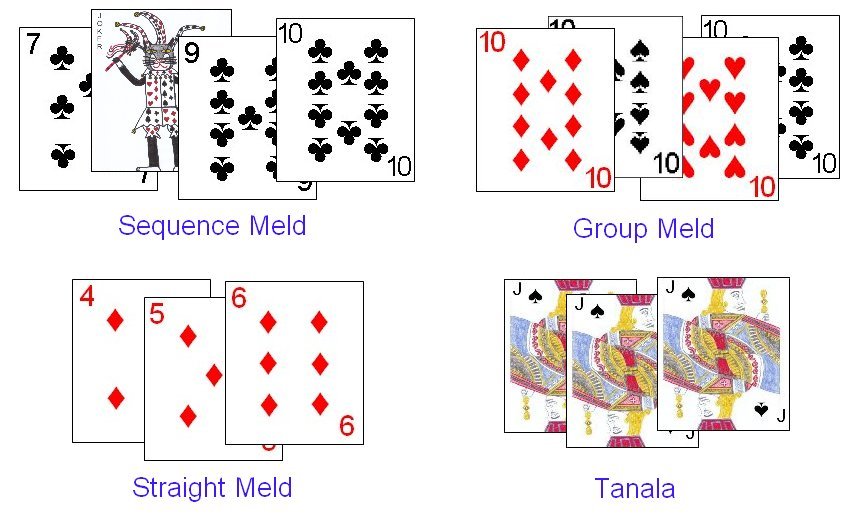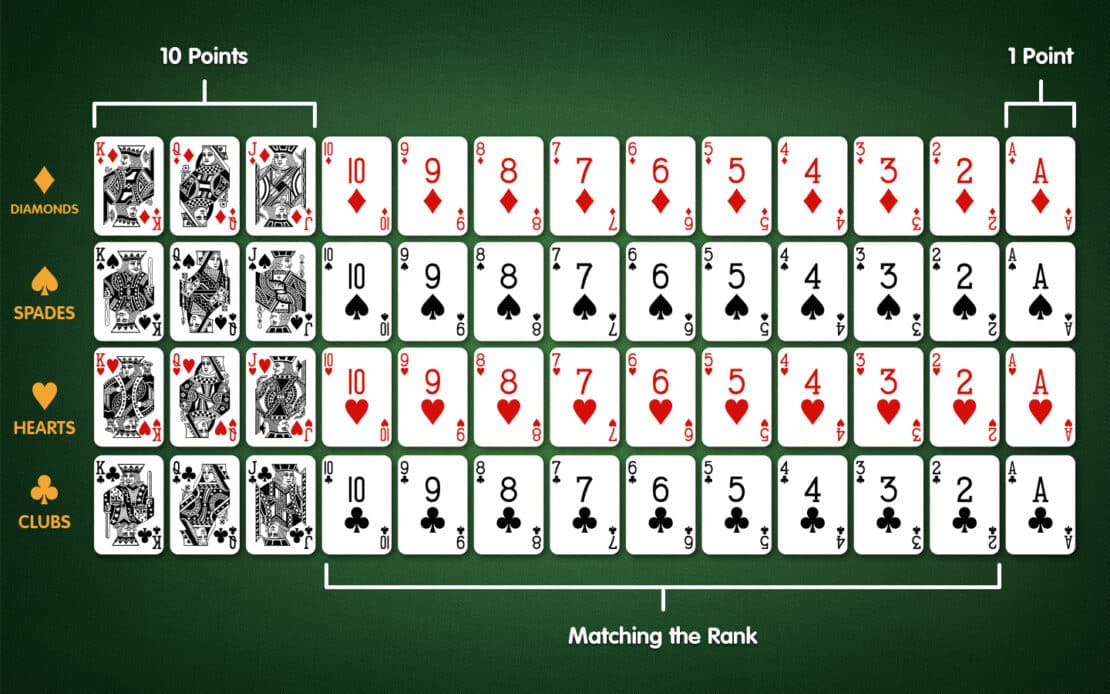Easy Indian Rummy Guide: Beginner-Friendly Tutorial

Welcome to this straightforward tutorial on Indian Rummy Game, a beloved card game that’s perfect for family gatherings or online fun. If you’re new to card games or looking for a clear way to learn how to play Rummy step by step, you’ve come to the right place. This guide breaks down everything from basic rules to advanced tips, making it easy for anyone in India to pick up and enjoy. Whether you’re playing with friends at home or trying online versions with exciting bonuses, we’ll cover it all in simple language. Let’s dive in and turn you into a confident Rummy player!
What is Indian Rummy?
Indian Rummy is a popular variant of the classic Rummy card game, tailored to suit players across India with its fast-paced and strategic gameplay. It’s often called “Paplu” in some regions and involves forming groups of cards known as melds to win rounds. Unlike other card games that rely purely on luck, Indian Rummy emphasizes skill, observation, and quick decision-making, making it a favorite for both casual and competitive play.
This game stands out because it uses two standard decks of cards, including jokers, which add an element of surprise. Typically played by 2 to 6 people, it’s ideal for small groups. The core idea is to arrange your 13 cards into valid sequences and sets before your opponents do. A sequence is a run of consecutive cards in the same suit, like 4-5-6 of hearts, while a set is cards of the same rank but different suits, such as three 7s from clubs, diamonds, and spades.
What makes Indian Rummy so engaging is its blend of strategy and excitement. Players must constantly watch discards, plan their moves, and adapt to changing hands. It’s not just about the cards you get—it’s how you play them. In India, this game has become a cultural staple, often enjoyed during festivals like Diwali or casual evenings. If you’re searching for “what is Indian Rummy explained simply,” think of it as a puzzle where you assemble your cards to declare a win.

The Rich History of Rummy in India
Rummy’s roots trace back centuries, but its Indian version has a unique evolution that ties into global influences. The game likely originated from older card games like Conquian in Mexico or Mahjong in Asia, which spread through trade routes. In India, it gained popularity in the 20th century, possibly evolving from a South Asian variant called Celebes Rummy or Rhuk. By the mid-1900s, it had become a household name, especially in urban areas where people adapted it with local twists.
During colonial times, British influences mixed with traditional Indian card games, leading to the 13-card format we know today. Post-independence, Rummy exploded in popularity through family traditions and community events. The rise of online platforms in the 2000s transformed it into a digital sensation, with millions playing on apps across states like Maharashtra, Tamil Nadu, and Karnataka.
Today, Indian Rummy represents more than entertainment—it’s a skill-based activity recognized by courts in some contexts as a game of skill rather than chance. This history adds depth to why so many search for “history of Rummy games in India,” highlighting its journey from ancient inspirations to modern apps.
Basic Rules of Indian Rummy
Understanding the rules is key to enjoying Indian Rummy without confusion. Let’s break it down into essentials so you can start playing right away.
Objective of the Game
The main goal is to form at least two sequences, one of which must be a “pure sequence” without jokers, and the rest can be sets or additional sequences. You win by declaring your hand first with zero penalty points, while others score based on unmatched cards.
Deck and Number of Players
Indian Rummy uses two standard 52-card decks plus printed jokers (usually 2-4 jokers total). For 2 players, one deck might suffice, but for 3-6 players, two are standard. No more than 6 players to keep it manageable.
How Cards Are Dealt
The dealer shuffles and deals 13 cards face-down to each player. One card is flipped to start the open deck (discard pile), and the rest form the closed deck (draw pile). A random card is selected as the wild joker if not using printed ones.

Gameplay Mechanics
Play moves clockwise. On your turn:
- Draw a card from either the closed deck or the open deck.
- Discard one card to the open deck (unless declaring).
- Aim to build melds in your hand secretly—no laying down until declaration.
The game ends when a player declares a valid hand. Invalid declarations cost penalty points.
Understanding Melds: Sequences and Sets
- Pure Sequence: 3+ consecutive cards of the same suit, no joker (e.g., 7-8-9 of clubs).
- Impure Sequence: Similar but can include a joker (e.g., 5-Joker-7 of diamonds).
- Set: 3-4 cards of the same rank, different suits (e.g., Queen of hearts, spades, clubs). Jokers can substitute.
You need at least one pure sequence to declare. This rule ensures strategy over luck.
These rules make Indian Rummy accessible yet challenging. If you’re wondering “basic Indian Rummy rules for beginners,” this covers the foundation—practice a few rounds to get comfortable.
Step-by-Step Guide: How to Play Indian Rummy
Ready to play? Here’s a simple, step-by-step walkthrough for a typical game. We’ll assume 4 players for this example.
- Setup the Game: Gather 2-6 players around a table. Shuffle two decks with jokers. Choose a dealer randomly.
- Deal the Cards: Dealer gives 13 cards to each player. Flip one card for the open deck; the rest is closed. Pick a wild joker if needed (e.g., all Aces if Ace is drawn).
- Start Your Turn: Player left of dealer goes first. Draw from closed or open deck.
- Build Your Hand: Focus on forming sequences first. Watch what opponents discard to guess their needs. Use jokers wisely for impure melds.
- Discard Strategically: Always discard high-value cards (like face cards worth 10 points) early if they don’t fit, to minimize penalties if you lose.
- Declare When Ready: Once you have valid melds (minimum two sequences, one pure), discard your last card and say “Show” or declare. Show your hand for validation.
- Scoring the Round: Winner gets 0 points. Losers add up unmatched cards: Face cards=10, Aces=10 or 1 (depending on variant), numbers=face value. Jokers=0.
- Continue Rounds: Play multiple rounds until a player reaches a set score (e.g., 101 or 201 in pool variants) or deals are done.
This step-by-step approach answers common searches like “how to play Indian Rummy tutorial for beginners.” Practice with low stakes to build confidence. For online play, check out platforms where you can try free games—ready to test your skills? Explore more on Rummy games and start playing today at Indian Rummy Tutorial for an exciting experience!
Winning Tips and Strategies for Indian Rummy
To go from beginner to pro, incorporate these strategies. They’re based on real player experiences and can boost your win rate.
- Prioritize Pure Sequences Early: Always aim for a pure sequence first—it’s mandatory and reduces risk.
- Observe Discards: Note what others throw away. If someone discards a 6 of hearts, they might not need hearts sequences.
- Manage High-Value Cards: Discard Kings, Queens, Jacks early if unused, as they add heavy penalties.
- Use Jokers Smartly: Save them for completing sets or impure sequences, not pure ones.
- Bluff Occasionally: Discard cards that might mislead opponents about your hand.
- Practice Middle Cards: Cards like 5-6-7 are versatile for multiple sequences.
For deeper strategies, consider variations in play styles. Many players search for “best tips for winning Indian Rummy,” and these focus on observation and patience. Remember, skill improves with time—don’t rush.
Popular Variations of Rummy Games in India
Indian Rummy isn’t one-size-fits-all; several variants keep it fresh.
- Points Rummy: Fast-paced, single deal. Loser pays based on points. Ideal for quick games.
- Pool Rummy: Players aim to stay under 101 or 201 points over multiple rounds. Eliminated when limit reached.
- Deals Rummy: Fixed number of deals (e.g., 2-6). Winner has lowest total points at end.
- 21-Card Rummy: Uses three decks, more complex with marriage points and value cards.
- Gin Rummy Influence: Some Indian versions borrow from Gin, focusing on knocking with low deadwood.
These variations suit different moods—search for “Rummy variations in India explained” to find which fits you. Online apps often offer all, with tutorials.

Online Indian Rummy and Bonus Rewards
In today’s digital age, online Rummy has surged in popularity, offering convenience and real cash prizes. Platforms in India provide secure play with RNG (Random Number Generator) for fairness.
One highlight is the bonus rewards tailored for Indian players. New users often get a welcome bonus, like ₹51 free cash on signup or up to ₹3000 on first deposit. Referral bonuses can earn you ₹1000 per friend who joins and plays. Daily tournaments offer extra chips or cashback, such as 50% bonus on deposits. Always check terms, like wagering requirements.
For safe cash-outs, use trusted methods. Learn secure withdrawal tips from related games—check out how to cash out safely from Teen Patti games or 3 Patti cash withdrawal guide to handle winnings smoothly.
Playing online? Start with free tables to practice, then dive into rewarded games. This addresses “online Rummy bonuses in India” searches, making play rewarding.
Responsible Gaming: Play Smart and Stay Safe
While Rummy is fun, it’s crucial to approach it responsibly to avoid addiction. Set a budget before playing and stick to it—never gamble more than you can afford to lose. Limit your time; use app timers to remind you to take breaks.
Don’t chase losses—view it as entertainment, not income. Balance gaming with other activities like exercise or hobbies. If upset or stressed, avoid playing. Recognize signs of problem gambling, like borrowing money to play, and seek help from helplines in India.
Platforms promote responsible gaming with self-exclusion tools. For awareness, remember: Gamble for fun, not fortune. This section answers “responsible gaming tips for card games,” promoting healthy habits.
Frequently Asked Questions About Indian Rummy
Here are clear answers to common queries, based on user searches like “Indian Rummy FAQs for beginners.”
Conclusion
Indian Rummy is more than a game—it’s a blend of skill, strategy, and social fun that has captivated players for generations. From learning basic rules to mastering variations and enjoying online bonuses, this tutorial equips you with everything needed to play confidently. Remember to practice responsibly, set limits, and enjoy the thrill without overdoing it.
Ready to put your new skills to the test? Head over to Teen Patti Stars for a seamless gaming experience, or explore specific Rummy options at Instant Rummy Game App. Sign up today and claim your bonus—happy playing!
References
Teen Patti Brands
Dhani Teen Patti — Your Card Adventure with Dhani
Exploring the World of Teen Patti Live
Happy Ace Casino | Teen Patti Stars
Happy Teen Patti — The Joyful Realm of Card Gaming
Meta Teen Patti | Teen Patti Stars
Real Teen Patti — Embark on a Card Gaming Journey
Rummy Ares APK | Teen Patti Stars
Rummy East APK | Teen Patti Stars
Rummy Master | Teen Patti Stars
Rummy Perfect | Teen Patti Stars
Slot Master APK | Teen Patti Stars
Teen Patti Circle | Teen Patti Stars
Teen Patti Club – A pass to Card Game Excellence
Teen Patti Glee – The Delight of Card Gaming
Teen Patti Gold | Teen Patti Stars
Teen Patti Live | Teen Patti Stars
Teen Patti Master | Teen Patti Stars
Teen Patti Octro | Teen Patti Stars
Teen Patti Sweet — Unleash Sweetness in Every Hand
Teen Patti Vungo | Teen Patti Stars
Teen Patti Winner — Unlocking Victory
Teen Patti Yes – Igniting Your Passion for Card Gaming
Read Our Blogs
- Teen Patti Bonus vs Cashback – Which Is Safer?This page aims to help Indian players understand the differences between Teen Patti bonuses and cashback offers, focusing on safety aspects to make informed choices in online gaming. Introduction: Why Players Get Confused Between Bonuses and Cashback Many Indian players diving into online Teen Patti often mix up bonuses and cashback. Both seem like ways…
- Online Casino Christmas Rewards: Unwrap Festive Bonuses and Wins in 2025The holiday season is here, and what better way to celebrate than with thrilling online casino games packed with Christmas rewards? If you’re new to this or just looking for some festive fun, imagine logging into a game and instantly getting bonus chips, free spins, or even cash rewards to boost your play. It’s simple:…
- Real Money Casino Games: What’s Coming in 2026Hey, remember that rush from your first big win on an online slot—the screen lighting up, your heart skipping a beat, and suddenly your coffee tastes a whole lot sweeter? That’s the magic of real money casino games, isn’t it? But as we wrap up 2025 here on December 11, staring down the barrel of…
- Real Cash Casino Games 2025–2026: What’s New for Players?Picture this: It’s a rainy evening in Mumbai, and instead of staring at the TV, you’re at a virtual blackjack table, chatting with folks from Delhi and Dubai, your bets zipping through in seconds via your phone. No smoke-filled rooms, no travel hassles—just pure, pulse-racing fun with real stakes. That’s the promise of real cash…
- 2025–2026 Real Money Gaming Upgrade: New Features RevealedIn the fast-paced world of online entertainment, real money gaming continues to captivate millions, blending thrill with the potential for rewards. As we step into late 2025, the industry is on the cusp of a transformative era for 2025-2026. Gone are the days of static slots and basic card games; today’s upgrades promise smarter, safer,…
- Online Casino Transactions in India 2025: Complete Guide to Safe & Fast PaymentsAs India’s digital economy touches new heights, millions of players search every day for “online casino payment methods India 2025”, “fastest casino deposit in India”, or “safe online casino transactions India”. With the new Online Gaming Act 2025 now in force across most states, the way money moves in and out of gaming platforms has…
- Best Online Casinos Accepting PayPal in India 2025In the vibrant world of online entertainment, Indian players often seek seamless ways to enjoy casino games while prioritizing security and convenience. With PayPal’s global reputation for fast, encrypted transactions, it’s a top choice for many searching “PayPal casinos India 2025.” However, the landscape has shifted dramatically due to recent regulations. This guide provides an…
- Deposit Guide to Teen Patti in IndiaTeen Patti, often called the Indian version of poker, has captured the hearts of millions across the country. As online gaming platforms grow in popularity, understanding how deposits work in these games becomes essential for enthusiasts. This deposit guide explores the key aspects of funding your Teen Patti account in India, highlighting reliable methods, safety…
- Safe Teen Patti APK Download for Indian Players in 2025In 2025, with India’s gaming landscape shifting due to new regulations, finding a safe Teen Patti APK download has become more crucial than ever for Android users in the country. If you’re an Indian player searching for “safe Teen Patti APK download for Android 2025” or “best free Teen Patti apps without real money in…
- Teen Patti Real Money: How to Play and Win in IndiaTeen Patti, often called Indian Poker, is a thrilling card game that’s exploded in popularity across India, especially when played for Teen Patti real money. If you’re searching for “how to play Teen Patti real money online in India” or “best strategies to win Teen Patti cash games,” this guide is your one-stop resource. Rooted…
